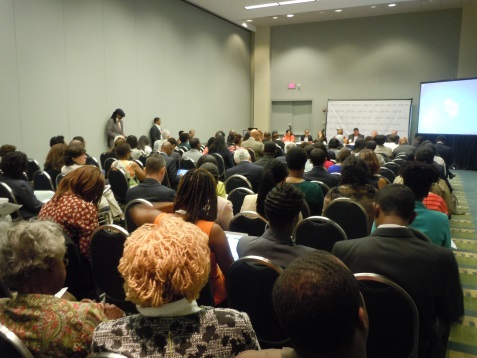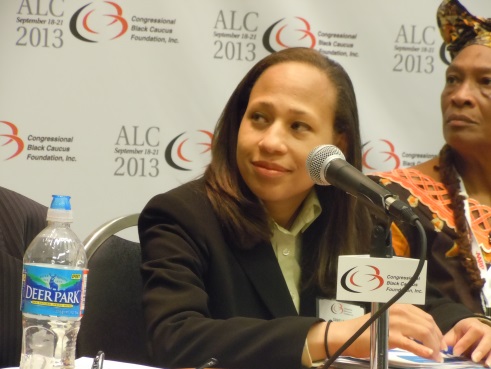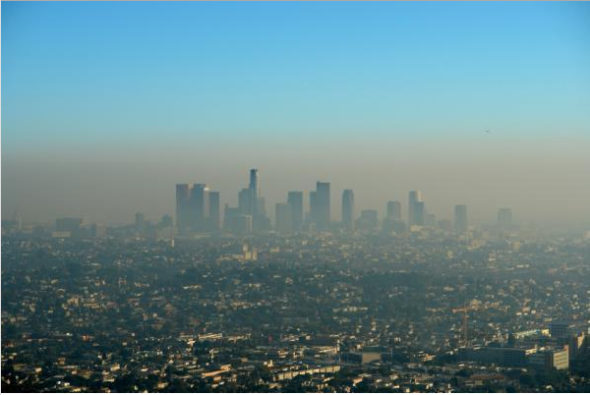In Washington, DC, on September 20, the EPA announced its historic proposed rule on limiting carbon emissions from new power plants. Soon after, a Congressional Black Caucus Foundation Annual Legislative Conference panel focused on the topic of environmental justice – and the progress that can be made on that front if the rule is approved.
African Americans are disproportionately impacted by climate change because they are more likely to live near polluting power plants that exacerbate health ailments like asthma. They are also more likely to experience the consequences of extreme weather events that are caused by climate change.
EPA Administrator Gina McCarthy was a surprise guest at the CBC event, the premiere conference on legislative and policy issues impacting the African American community. In fact, it was her first stop after announcing the new power plant rule, and she used the occasion to stress the environmental justice benefits that the rule will have.
“Environmental justice is not a secondary issue; it is a core issue,” McCarthy said.

Joint Center President and CEO Ralph B. Everett meets EPA Administrator Gina McCarthy.
U.S. House Assistant Democratic Leader Rep. Jim Clyburn (D-S.C.) hosted the packed session at the CBC, which featured seven panelists including Danielle Deane, Director of the Joint Center for Political and Economic Studies’ Energy and Environment Program. Deane helps to advance the work of the Joint Center’s Commission to Engage African Americans on Energy, Climate Change and the Environment.
Congressman Clyburn echoed the need for the rule to move forward. “I will work closely with the Obama Administration on climate change to improve the health and economic security of African-Americans and to ensure environmental justice for all,” said Clyburn.
“While addressing pollution and climate change will benefit all Americans, it is especially important to African American communities, where impacts such as extreme weather and health problems are most acutely felt, and where there is a pressing need for the new clean energy jobs that action on climate change will help generate,” Clyburn added.

A standing-room-only crowd fills Congressman Clyburn’s environment panel.
Deane shared how environmental justice impacts African Americans and how, by supporting President Obama’s Climate Action Plan and the historic EPA rule, health and wealth disparities could be addressed. She also highlighted emerging policy models for ensuring that minority-owned businesses and others located in communities of color benefit from jobs and business opportunities related to green economy investments.
During the panel, Deane reminded the audience that they can make their voices heard in a wide variety of ways, including through social media: for example, by tweeting using #ActOnClimate.

Danielle Deane joins the environment panel at the 2013 CBC conference.
Dr. Mildred McClain, environmental justice pioneer and director of the Savannah-based Harambee House, reminded leaders of the work that went into getting President Clinton to issue an Environmental Justice Presidential Executive Order in 1994. However, McClain stressed there is much more that needs to be done to ensure everyone – regardless of color – has access to clean air and clean water.
The Joint Center for Political and Economic Studies President and CEO Ralph B. Everett, who co-chairs the Joint Center’s Commission, attended the session and also issued a statement about the proposed rule to limit power plant carbon emissions.
“We commend this decision by the EPA and look forward to further action empowering states to regulate carbon emissions from existing power plants, which are the nation’s biggest contributor to the greenhouse gases that cause climate change,” said Everett.










